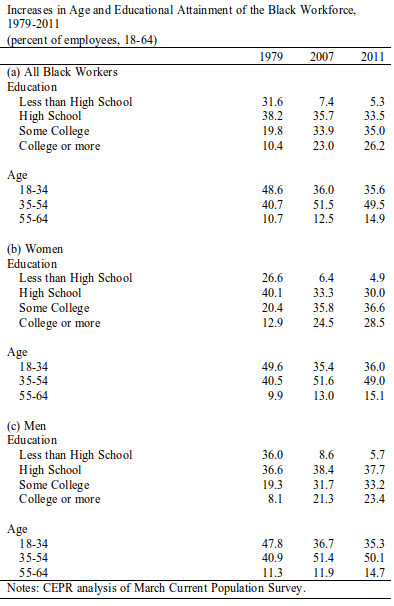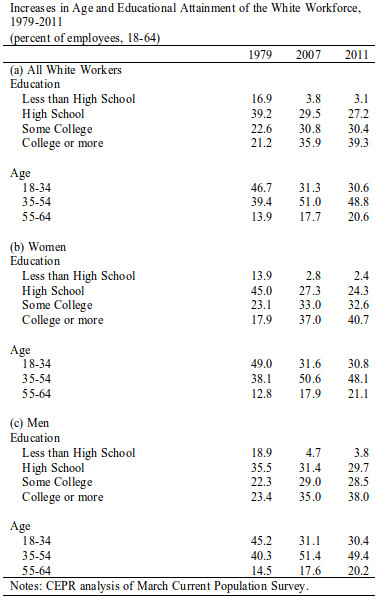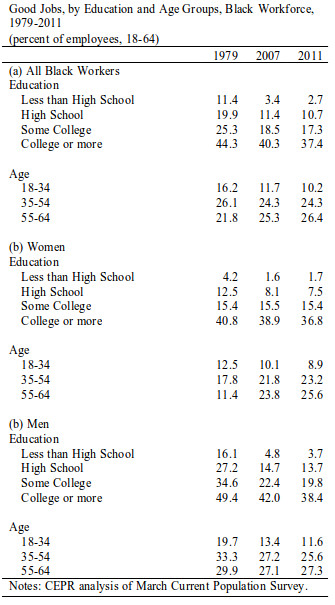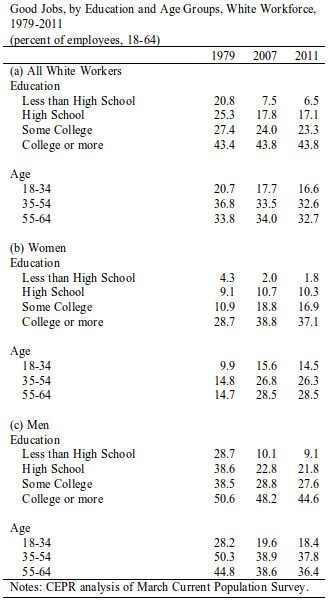August 01, 2013
In a recent report, we demonstrated that despite large increases over the last three decades in educational attainment, black workers are less likely to be in a good job than they were three decades ago. In this post, we compare outcomes over the same period for black and white workers.
Between 1979 and 2011, both black and white workers significantly increased their educational attainment. In proportional terms, black workers either matched or exceeded the improvements made by white workers. Between 1979 and 2011, for example, the share of black workers with less than a high school degree fell from 31.6 percent to 5.3 percent (an 83 percent decline), and the share with at least a four-year college degree increased from 10.4 percent to 26.2 percent (a 152 percent increase). At the same time, the share of white workers that did not graduate from high school also fell, from 16.9 percent to 3.1 percent (an 82 percent decline). The share of white workers with a college degree also rose, but at a slower rate than for blacks, from 21.2 percent to 39.3 percent (an 85 percent increase, see the tables below).


In 2011, at every education level, white workers were more likely than black workers to be in good job –one that pays at least $19 per hour, has health insurance, and has some kind of retirement plan (see tables below). The good jobs racial gap for workers with a high school degree and those with some college (but short of a four-year degree) was about 12.4 percentage points (40.4 percent for white workers, compared to 28.0 percent for black workers). Even black workers with at least a college degree were about 6 percentage points less likely to be in a good job than white workers with the same level of education (43.8 percent for white workers compared to 37.4 percent for black workers).


In 1979, black women with a four-year degree were actually more likely to be in a good job than white women with the same level of education (40.8 percent for black women, 28.7 percent for white women). By 2011, the situation had reversed, with 36.8 percent of college-educated black women in a good job and 37.1 percent of white women in a good job with the same level of education. Throughout the entire period we studied, college-educated white men have been more likely to be in a good job than college-educated black men. The gap grew from 1.2 percentage points in 1979 to 6.2 percentage points in 2011, when 44.6 percent of white men with a college degree held a good job, compared to only 38.4 percent of black men with a college degree.







